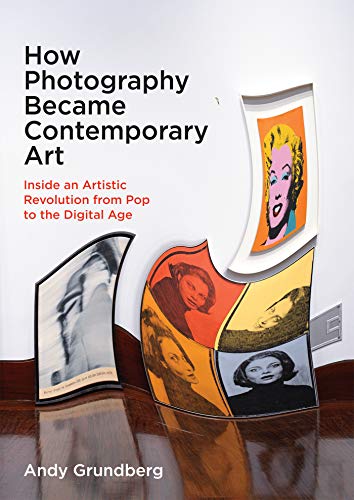8 Photography Criticism Books That Define Visual Art Mastery
Recommended by Louis Menand, Dwight Garner, and Caroline Weber for deep insights into Photography Criticism







What if a single photograph holds the power to challenge how we see the world — morally, culturally, and artistically? Photography criticism unpacks this power, revealing not just techniques but the profound stories and philosophies behind images. At a time when images flood our lives, understanding their deeper meanings has never felt more urgent.
Consider Louis Menand's fascination with Philip Gefter’s biography of Richard Avedon, a photographer whose work shaped fashion and culture. Dwight Garner, a New York Times critic, praises how this book brings Avedon’s legacy into sharp focus, while Caroline Weber highlights its timely cultural resonance. These voices, among others, guide you toward books that illuminate photography’s impact beyond the surface.
While these expert-curated books provide proven frameworks, readers seeking content tailored to their specific interests, experience level, or thematic focus might consider creating a personalized Photography Criticism book that builds on these insights, delivering focused knowledge crafted just for you.
Recommended by Louis Menand
Staff Writer at The New Yorker
“Imagine the offspring of Marcel Proust and the Energizer Bunny--that's who Richard Avedon was, a chronicler of fashion, an analyst of social types, the author in pictures of his era. And Philip Gefter captures him. His biography is an Avedon of Avedon.”
by Philip Gefter··You?
by Philip Gefter··You?
Philip Gefter, a seasoned photo critic and former New York Times editor, offers a penetrating look into Richard Avedon's life and legacy in this biography. You learn not just about Avedon's iconic images but about the personal struggles and cultural battles that shaped his work—from his efforts to elevate fashion photography to fine art to his complex relationships with contemporaries like James Baldwin and Truman Capote. The book reveals how Avedon's stark portrait style redefined visual storytelling and challenged mid-century cultural norms, especially in chapters detailing his transformative 1950s and 1960s projects. If you want to understand the human behind the camera and the evolution of photographic art, this book guides you through both with clarity and depth.
by Susan Sontag··You?
by Susan Sontag··You?
Unlike most photography criticism books that offer straightforward technical analysis, Susan Sontag probes the deeper ethical and aesthetic questions photography raises in modern life. Through essays that examine how photographs influence our perception of reality, shape conscience, and intersect with art and knowledge, you gain a nuanced understanding of the medium's cultural power. Specific chapters analyze iconic photographers' work to reveal how images command authority and complicate truth. If you're interested in the moral implications behind the lens and how photography functions beyond simple representation, this collection will expand your perspective, though it’s less about practical technique and more about critical reflection.
by TailoredRead AI·
This tailored book explores photography criticism by focusing on your unique expertise and interests, offering a deeply engaging learning experience. It examines the history, theory, and cultural significance of photographic images while addressing your specific goals and background. By blending foundational concepts with your preferred themes, the book reveals how to analyze visual elements, ethical considerations, and artistic intent in photography. This personalized approach helps you navigate complex critical perspectives and sharpen your interpretive skills, making the subject accessible and relevant to your needs. It’s a focused journey that matches your interests, enabling a richer understanding of photography as a powerful visual art.
by Roland Barthes·You?
by Roland Barthes·You?
Roland Barthes, a renowned literary theorist and philosopher, crafted this reflective work to explore the elusive essence of photography beyond technicalities. You gain insight into concepts like the "punctum," the detail in a photograph that unexpectedly pierces the viewer's emotions, and the "studium," the cultural context informing an image's meaning. Barthes’ meditations invite you to reconsider how images communicate memory, death, and presence, making it particularly rewarding if you're drawn to the intersection of philosophy and visual art. While not a manual on photography techniques, it challenges your perception of what photographs signify and how they affect us personally and culturally.
by Terry Barrett··You?
by Terry Barrett··You?
Terry Barrett challenges the usual ways we think about photographs by exploring their power beyond mere visuals. You’ll encounter diverse perspectives—from photographers to critics and historians—on what photographs mean and how they influence society and personal beliefs. The book guides you through evaluating images not just aesthetically but ethically, offering tools to weigh competing interpretations thoughtfully. For example, Barrett dives into questions like whether photographs qualify as art and how to conduct critiques that engage both artists and public audiences. If you want a nuanced understanding of images' impact and to sharpen your critical eye, this book offers a thoughtful approach that doesn’t shy away from complexity.
by Andy Grundberg·You?
The research was clear: traditional art criticism hadn’t fully captured photography’s rise as a dominant contemporary medium until Andy Grundberg stepped in. Drawing from his years as New York Times critic through photography’s transformative boom in the 1970s and ’80s, Grundberg offers a vivid chronicle blending personal encounters with key artists like Cindy Sherman and Robert Mapplethorpe. You’ll gain insight into how photography intertwined with major art movements, museums, and culture wars, unpacking complex themes such as feminism and race within the medium. This book suits anyone wanting a nuanced understanding of photography’s emergence into the contemporary art spotlight, especially those intrigued by its cultural and political contexts.
by TailoredRead AI·
This personalized book explores the art and discipline of photography criticism through a tailored, step-by-step 30-day program designed to sharpen your critical eye. It examines core concepts such as visual analysis, ethical considerations, and cultural contexts, focusing on your unique interests and background. The book reveals how to systematically evaluate imagery, uncover deeper meanings, and articulate your insights effectively. With a tailored approach, it matches your current skill level and professional goals, enabling a focused learning experience that accelerates your development as a discerning photography critic. Readers gain a rich understanding of both foundational and nuanced aspects of visual critique, all framed to resonate with their personal journey.
by Robert Adams··You?
by Robert Adams··You?
Unlike most photography criticism that leans on modern trends, Robert Adams draws from his deep experience in the New Topographics movement to defend traditional photographic values. You’ll find eight essays that examine what makes photography meaningful beyond fleeting styles, exploring themes like composition, light, and the photographer’s intent. For example, Adams discusses how simplicity and restraint can evoke powerful emotions, challenging you to reconsider what beauty means in images. This book suits anyone interested in thoughtful reflection on photography’s artistic principles rather than technical how-tos or market trends.
by Henri Cartier-Bresson·You?
by Henri Cartier-Bresson·You?
Henri Cartier-Bresson's decades-long career as a pioneering photographer deeply informs this collection of essays, offering you a rare glimpse into the mind behind iconic images. You'll explore his concept of "the decisive moment," gaining insight into how timing and intuition shape compelling photographs. The book also transports you to historical scenes in Moscow, Cuba, and China, enriching your understanding of photography's role in witnessing turbulent times. If you're passionate about the art and philosophy behind photography, this book sharpens your critical eye and appreciation for visual storytelling.
by Liz Wells··You?
by Liz Wells··You?
Liz Wells brings her extensive academic background as Professor Emeritus in Photographic Culture to this detailed exploration of photographic theory. You gain a nuanced understanding of photography’s role within social and political frameworks, including critical analysis of documentary photography, photojournalism, and the evolving dialogue around the body and commodity culture. The book unpacks key debates with fresh case studies on contemporary issues like Black Lives Matter and the #MeToo movement, enriching your perspective with over 100 illustrative photographs from notable artists such as Cindy Sherman and Jeff Wall. This introduction suits those eager to deepen their grasp of photography’s cultural significance rather than simply its technical aspects.
Get Your Personal Photography Criticism Guide ✨
Stop following generic advice—get strategies tailored to your unique goals in 10 minutes.
Trusted by top photography criticism experts and enthusiasts
Conclusion
This collection of books reveals three clear themes: the ethical and cultural weight of images, the philosophical depths behind photographic art, and the evolving role of photography within contemporary society. If you're grappling with how to interpret images ethically, start with Susan Sontag's On Photography and Terry Barrett's Criticizing Photographs. For a nuanced grasp of photography’s place in art history and culture, combine Andy Grundberg's How Photography Became Contemporary Art with Liz Wells’ Photography.
Those seeking inspiration from legendary practitioners will find Philip Gefter’s biography of Richard Avedon and Henri Cartier-Bresson’s essays invaluable for visual storytelling mastery. Alternatively, you can create a personalized Photography Criticism book to bridge the gap between general principles and your specific situation.
These books can help you accelerate your learning journey, equipping you with critical tools to see photography not just as images, but as powerful cultural texts worthy of deep examination.
Frequently Asked Questions
I'm overwhelmed by choice – which book should I start with?
Start with Philip Gefter's biography What Becomes a Legend Most for a compelling story that blends biography with photographic impact. It's a rich entry point that combines art, history, and criticism in an engaging narrative.
Are these books too advanced for someone new to Photography Criticism?
Not at all. While some books delve into complex theory, titles like Terry Barrett's Criticizing Photographs offer accessible introductions that build your critical skills step by step.
Should I start with the newest book or a classic?
Balancing both is wise. Classics like Roland Barthes’ Camera lucida provide foundational theory, while recent works such as Andy Grundberg’s How Photography Became Contemporary Art discuss current contexts.
Do I really need to read all of these, or can I just pick one?
You can certainly start with one that matches your interests — for example, choose Susan Sontag’s On Photography if you want ethical reflections, or Liz Wells’ Photography for cultural critique. Each book offers unique insights.
Which books focus more on theory vs. practical application?
Camera lucida and On Photography lean toward philosophical and ethical theory, while Criticizing Photographs provides practical tools for analyzing and interpreting images critically.
How can I tailor these insights to my own specific Photography Criticism goals?
These expert books offer valuable knowledge, but for targeted strategies that fit your experience and interests, consider creating a personalized Photography Criticism book. It bridges expert wisdom with your unique needs.
📚 Love this book list?
Help fellow book lovers discover great books, share this curated list with others!
Related Articles You May Like
Explore more curated book recommendations







